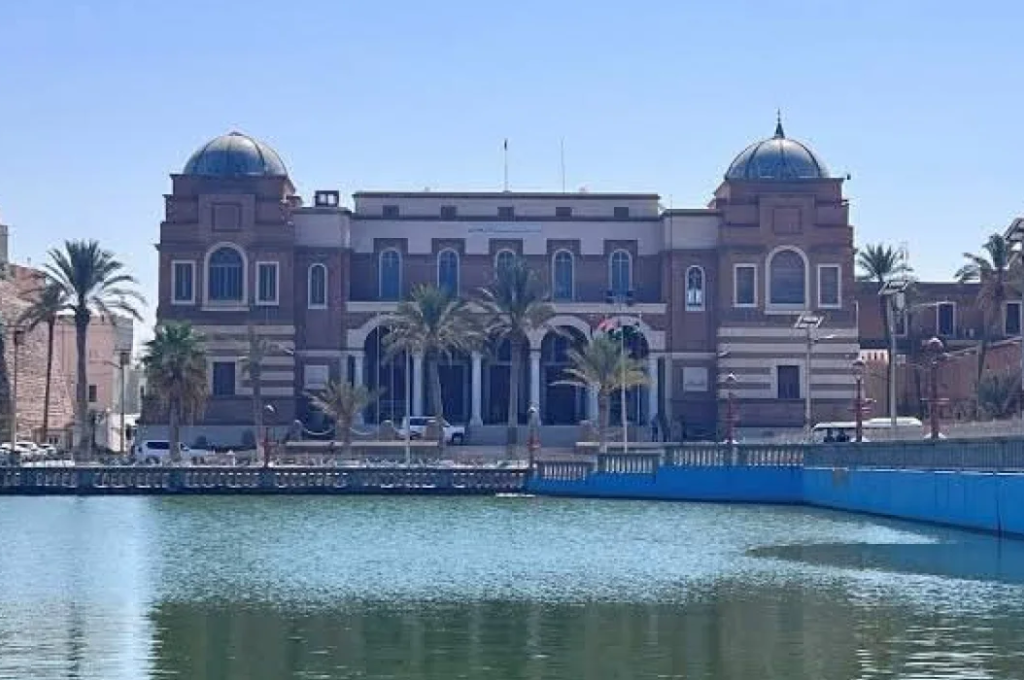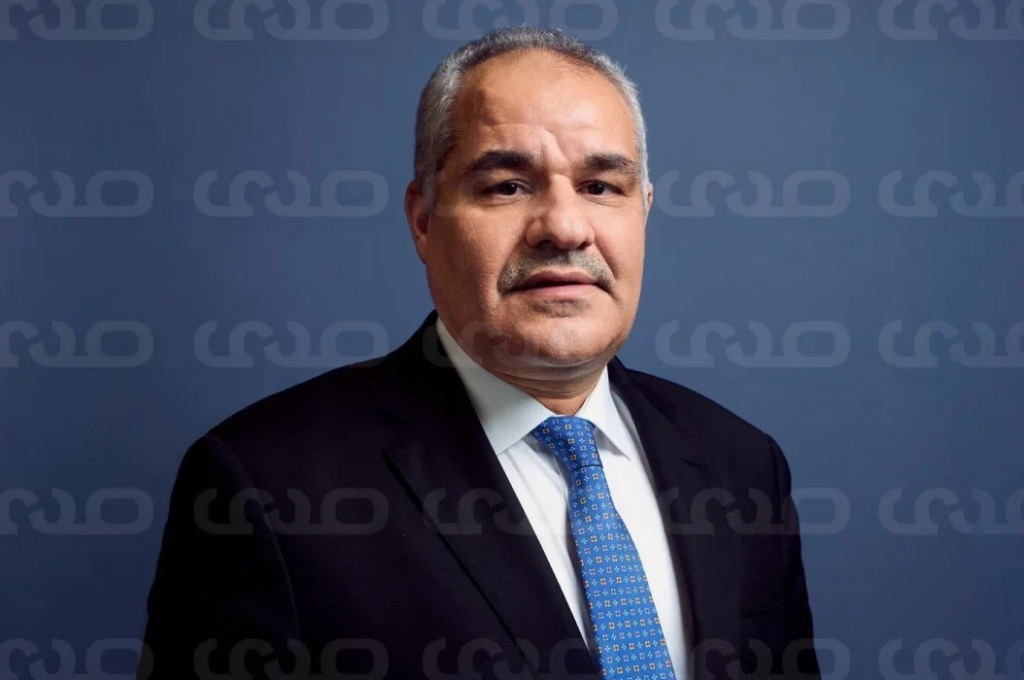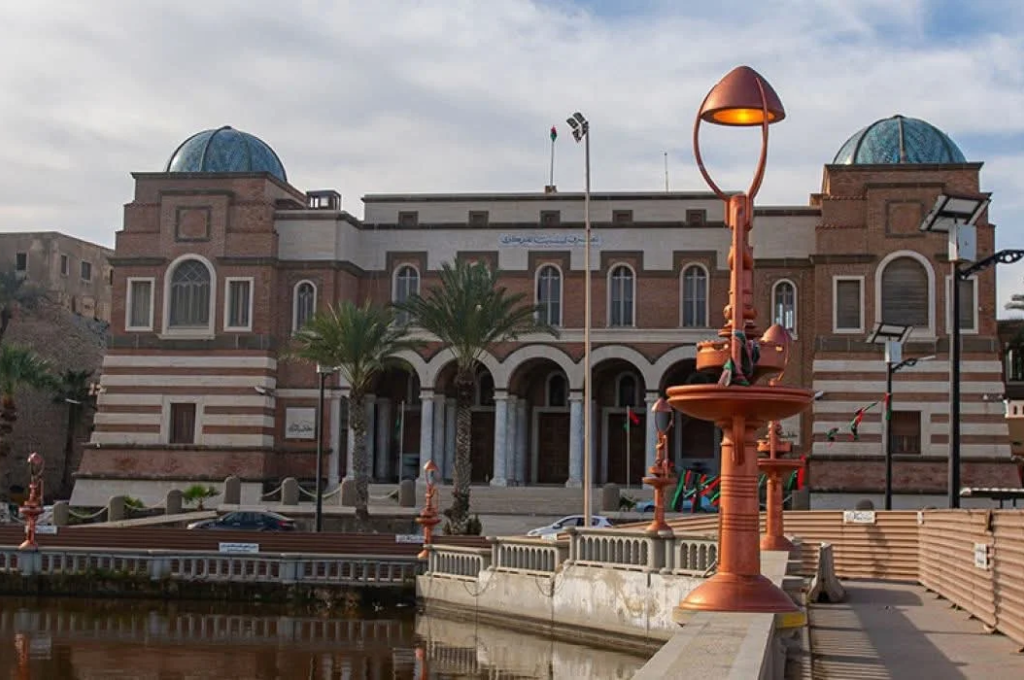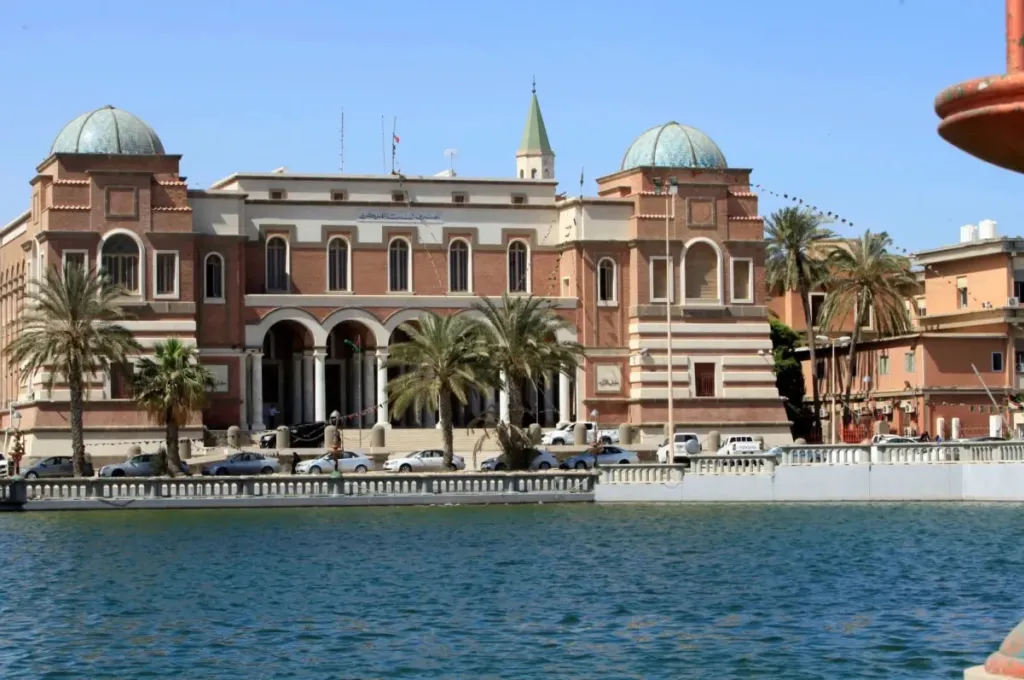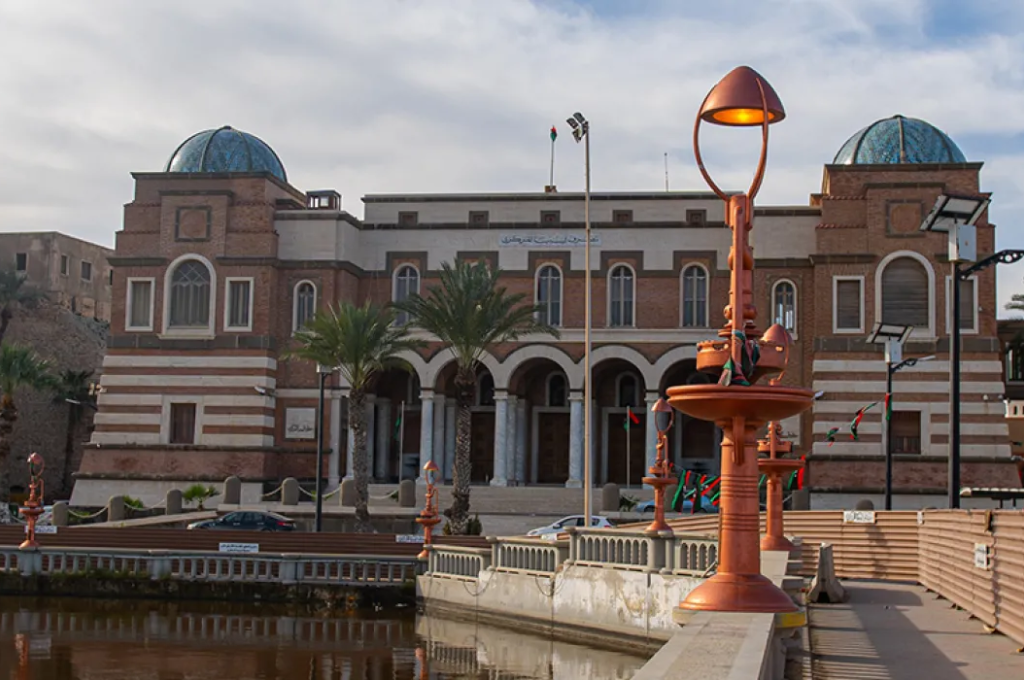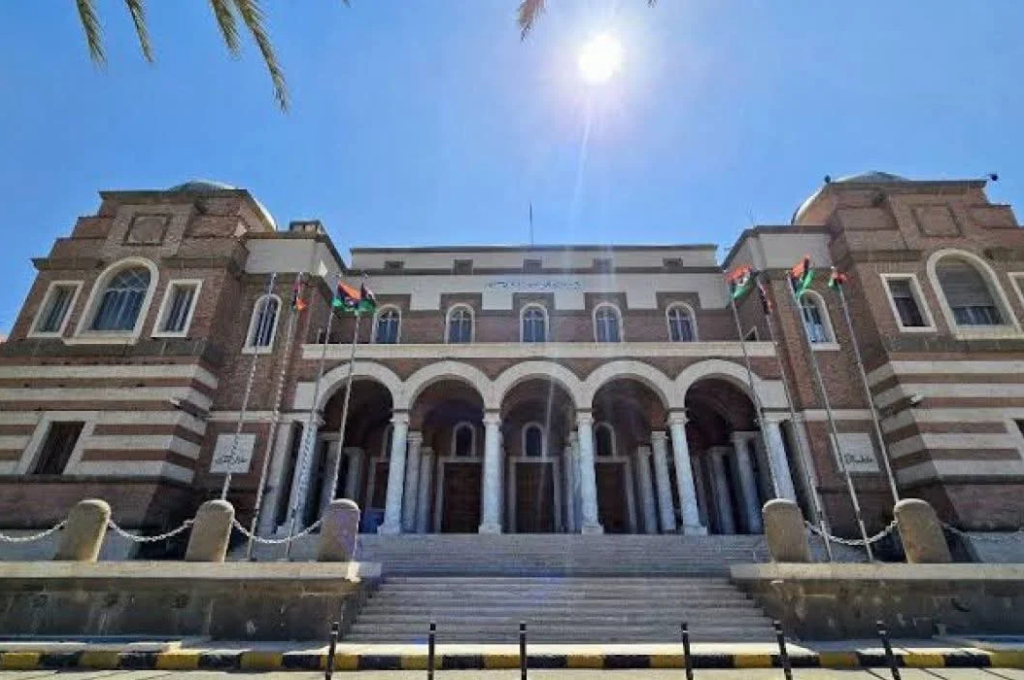News Archive
| News
Exclusive: Central Bank to Sada: “We Have the Capacity to Inject 15 Billion Dinars in Liquidity and Continue Distribution Until the End of January 2026”
The Central Bank of Libya exclusively told our source that starting next week, it has the capacity to inject 15 billion dinars in liquidity. The Central Bank confirmed that the distribution will continue until the end of January 2026.
Al-Manaa: “At the Doha Forum 2025, the Government of National Unity Discusses Global Economic and Justice Agendas”
Counselor Mustafa Al-Manaa wrote:At the Doha Forum 2025, the Government of National Unity took part in discussions on global economic and justice issues, at a time when the world is witnessing profound geopolitical and economic transformations. With international trade, artificial intelligence, and the energy transition topping the global agenda, the government engaged in discussions under […]
Al-Hdhiri Writes: “The NOC’s Loan Request to Increase Production Capacity and the Recurring Illusions”
The legal expert in the oil sector, Othman Al-Hdhiri, wrote an article in which he said: I read an article by a colleague interested in economics and finance discussing an anticipated loan for the National Oil Corporation, asking whether it is a necessary support for developing production or just another financial burden. He also seemed […]
| Reports
TTW Website: Libya Launches Strategic Plan to Develop Aviation Sector – New Airports to Drive Tourism Revival
Travelandtourworld website revealed that the authorities in Libya, North Africa, have jointly decided to implement a bold plan to develop the civil aviation sector, a move that could be decisive in reviving tourism and travel in the country. The founding committee meeting of the Libyan Aviation Holding Company (LAHC), chaired by the Minister of Transport […]
| News
Central Bank Governor Launches the “Zero Cash 100” Initiative to Accelerate Digital Transformation by Steering 100 Major Companies Toward Ending Cash Transactions and Adopting Electronic Payments
During the Banking Sector Forum, the Governor of the Central Bank of Libya launched three strategic initiatives, including the formation of a national advisory team for financial and economic reform made up of Libyan banking experts. This team will operate under the Governor’s direct supervision to provide technical advice and shape future financial and economic […]
| News
Exclusive: Central Bank to Sada: December Records the Highest Foreign Currency Sales; Market Turmoil Driven by a Small Group Resisting Anti–Money Laundering Rules and Restrictions on Fake LCs
The Central Bank of Libya revealed exclusively to our source that December has recorded the highest foreign currency sales compared to all previous months. This comes as banks prepare to secure goods for Ramadan and for the first quarter of 2026, through letters of credit, transfers, and personal-use allocations. The Bank added that around $2 […]
| News
Al-Hdhiri: “What Is the Use of Holding Conferences and Seminars With No Purpose?”
The legal expert in the oil sector, Othman Al-Hdhiri, wrote:What is the use of holding conferences and seminars that lead nowhere? Many of us may wonder: the Ministry of Oil and the National Oil Corporation repeatedly hold conferences and seminars from time to time, even though these gatherings bring nothing new. They waste public funds—hundreds […]
| News
Al-Shahoumi: “The Central Bank’s Statement Is an Opportunity and Rich Media Material to Discuss and Examine Our Reality and Its Causes”
The economic expert Sulaiman Al-Shahoumi wrote:“Every time the monthly statement of the Central Bank of Libya is released, it becomes an occasion for logical and rational discussion among experts. It is also an opportunity and rich media material to explore and analyze our reality and its causes, as well as the appropriate opinions and solutions […]
| News
Exclusive: Central Bank Addresses Several Oil Companies, the Bakeries Syndicate, and the Municipal Guard on the Use of Electronic Payment Methods
The Central Bank of Libya has revealed its correspondence sent to general managers of several oil companies — including Libya Oil Joint Venture, Golden Palm for Oil Services, International Trust for Oil Services, and Alrahila Company — instructing all stations to use electronic payment methods instead of cash transactions. The Bank emphasized the importance of […]
| News
Central Bank Statement: 94 Billion Dinars in Distributed Liquidity and 61.2 Billion in Salaries Amid Heavy Spending by Ministries and Councils
The Central Bank of Libya announced on Thursday that total revenues from January to November of the current year reached 115.3 billion dinars, compared to expenditures of 107.5 billion, resulting in a surplus of 7.9 billion dinars. Meanwhile, the foreign-currency deficit amounted to 7.8 billion dollars, which was covered through returns from the Central Bank’s […]
| Reports
Libya Attracts British Companies for Major Push in Renewable Energy
Utilities Middle East reported that Libya is accelerating reforms and seeking to attract British companies to seize significant opportunities in exporting solar and wind energy to Europe. Libya is intensifying efforts to draw British companies to invest in the renewable energy sector while implementing large-scale solar and wind projects aimed at supplying electricity to Europe. […]
| News
National Unity Ministry of Finance Requires Customs and Tax Authorities Not to Collect Amounts Exceeding 500 Dinars Except via Certified Checks or Electronic Payment
The Ministry of Finance in the Government of National Unity addressed the Customs and Tax Authorities today, Thursday, instructing all directorates, customs centers, and tax offices not to accept the collection of taxes or customs duties exceeding 500 dinars. The ministry clarified that if the mentioned amount is exceeded, it must be collected through a […]
| News
Exclusive… Administrative Control Authority halts procedures for companies refusing electronic payment and suspends the activity of “Modern Tolmeitha” at Misurata Port
Our source has exclusively obtained the Administrative Control Authority’s correspondence regarding the immediate implementation of a circular to stop the procedures of companies that do not accept electronic payment transactions. It also addressed the Misurata Free Zone Port Authority and Customs Center, instructing them to suspend all procedures related to Modern Tolmeitha Shipping Agencies until […]
| News
Exclusive: Central Bank: “Cash will be available starting Sunday, December 14, due to concerns it may leak through channels not designated for customers”
The Central Bank of Libya confirmed exclusively to our source that cash will be available in all branches of commercial banks starting from December 14. It added that today it completed the transfer of November salaries to their recipients through the instant salary system, and that salaries for the remaining sectors will be transferred through […]
Al-Zantouti: “When a Nation’s Resources Are Sold for Meager Gains to Rival Local Factions”
Written by financial analyst Khaled Al-Zantouti: “When a nation’s resources are sold for meager gains to rival local factions. News occasionally emerges about our governments and executive bodies forming partnerships with foreign parties, creating new companies, signing agreements or trade treaties, or awarding contracts to foreign firms—sometimes worth hundreds of millions or even billions. These […]


